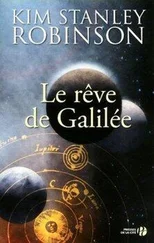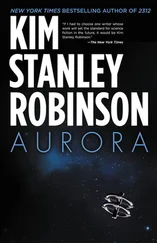Kim Robinson - In Pierson’s Orchestra
Здесь есть возможность читать онлайн «Kim Robinson - In Pierson’s Orchestra» весь текст электронной книги совершенно бесплатно (целиком полную версию без сокращений). В некоторых случаях можно слушать аудио, скачать через торрент в формате fb2 и присутствует краткое содержание. Жанр: Фантастика и фэнтези, на английском языке. Описание произведения, (предисловие) а так же отзывы посетителей доступны на портале библиотеки ЛибКат.
- Название:In Pierson’s Orchestra
- Автор:
- Жанр:
- Год:неизвестен
- ISBN:нет данных
- Рейтинг книги:4 / 5. Голосов: 1
-
Избранное:Добавить в избранное
- Отзывы:
-
Ваша оценка:
- 80
- 1
- 2
- 3
- 4
- 5
In Pierson’s Orchestra: краткое содержание, описание и аннотация
Предлагаем к чтению аннотацию, описание, краткое содержание или предисловие (зависит от того, что написал сам автор книги «In Pierson’s Orchestra»). Если вы не нашли необходимую информацию о книге — напишите в комментариях, мы постараемся отыскать её.
In Pierson’s Orchestra — читать онлайн бесплатно полную книгу (весь текст) целиком
Ниже представлен текст книги, разбитый по страницам. Система сохранения места последней прочитанной страницы, позволяет с удобством читать онлайн бесплатно книгу «In Pierson’s Orchestra», без необходимости каждый раз заново искать на чём Вы остановились. Поставьте закладку, и сможете в любой момент перейти на страницу, на которой закончили чтение.
Интервал:
Закладка:
The dead shall live, the living die,
and Music shall untune the sky.
Hallway to hallway to hallway I flit, like a bat in a mine. The lights are dimmed and the halls are empty, eerie gray slots. I cast long shadows from low light to light as I move along, next to the wall. I can feel my upper arms slide wetly against my ribs, and my heart’s allegro thumping. A voice within me sneers: “Time for your diamond, junkie.”
Dead sober will I see him, I promise myself again. My hand shakes and I put it back in my pocket. Familiar halls now, and I slow down as if the air is getting thicker; still in color-blind greys, and the air is perhaps filled with dust, or smoke. It is past time for my next crystal. I have not slept for five days, I am continuing on the drive of my decision.
Home. VANCOUVER CONSERVATORY, the tall door announces. I turn the knob, give the door a push to get it started. It opens. I slip through, silently cross the entrance floor. Pierson’s hologramic statue stares down at me, a short ruby-red figure transparent in the dim light. I circle him warily, alive to his presence in the shadows between me and the ceiling. Hallways, again; then another door, the door: sanctum sanctorum. You remember the old animated film Fantasia? Suddenly I am Mickey Mouse, in Dukas’ The Sorcerer’s Apprentice, about to interrupt the sorcerer over his cauldron. A deep bell clangs from the main hall and I jump. Midnight: time for the breaking of vows. I knock on the door, a mistake; I have the privilege of entering without knocking; but no, I have lost all that, I have revoked all that. An indistinct shout arrives from inside.
I push the door open and a slice of white light cuts into the hallway. In I go, blinking.
The Master is under the orchestra, on his back, tapping away cautiously at the dent in the tuba tubing. The dent occurred at the end of the last grand tour, when one of the workmen helping to move it onto a rollcart tripped and kicked the tuba with his steel-tipped boot.
The Master looks up, white eyebrows rising like a bird’s crest. “Eric,” he says mildly, “why did you knock?”
“Master,” I say shakily, my resolve still firm, “I can no longer be your apprentice.”
Watch that sink in, like a hot poker in snow. He edges out from under the orchestra, stands up; all slowly, so slowly. He is old. “Why is this, Eric?”
I swallow. I have a lie all prepared, I have considered it for hours and hours; it is absurd, impossible. Suddenly I decide to tell him the truth. “I am addicted to nepanathol.”
Right before my eyes his face turns deep red. “You what?” he says, then almost shouts, “I don’t understand!”
“The drug,” I explain, “I’m hooked.”
Has the shock been too much for him? He trembles. He gets it out, calm and clear. “Why?”
It is so complex. I shrug. “Master,” I say, “I’m sorry.”
With a convulsive jerk he throws the hammers in his hand, and I flinch; they hit the foam lining of the wall without a sound, then click against each other as they fall.
“You’re sorry!” he hisses, and I feel his contempt. Why does one always whisper in this room? “You’re sorry! My God, you’d better be more than sorry! Three centuries, eight masters of the orchestra, you to be the ninth and you break the line for a drug? The greatest artistic achievement of all time—” he waves toward the orchestra, but I refuse to look at it—”you choose nepanathol above it? How could you do it? I’m an old man, I’ll die in a few years, there isn’t time to train another musician like you—and you’ll be dead before I will!” True enough, in all probability. “I will be the last Master,” he cries out, “and the Orchestra will be silenced!”
With the thought of it he twists and sits down cross-legged on the floor, crying. I have never seen the Master cry before, never thought I would. He is not an emotional man.
“What have I done?” Echoless shrieks. “The Orchestra will end with me and they will say it’s my fault, that I was a bad Master—”
“You are the best of them,” I get out.
He turns on me. “Then why? Why? How could you do this?”
I would have been the ninth Master of Pierson’s Orchestra. The heir to the throne. The crown prince. Why indeed? Such a joke.
As from a distance I hear myself. “Master,” I say, “I will stop taking the drug.”
I close my eyes as I say it. For an old man’s sake I will go through the withdrawal from nep. I shake my head, surprised at myself.
He looks up at me with—what is it, craftiness? Is he manipulating me? No. It’s just contempt. “You can’t,” he mutters angrily. “It would kill you.”
“No,” I say, though I am by no means sure of this. “I haven’t been addicted long enough. A few hours; eight, maybe; then it will be over.” It will be short; that is my only comfort. A very real voice inside me is protesting loudly: “What are you doing?” Pain. Muscle cramps, memory confusion, memory loss. Nausea. Hallucinations. A high possibility of sensory damage, especially to the ears, sense of smell, and eyes. I do not want to go blind.
“Truly?” the old man is saying. “When will you do this?”
“Now,” I say, ignoring the voice inside. “I’ll stay here, I think,” gesturing toward the Orchestra but still not looking in its direction.
“I too will stay—”
“No. Not here. In the recording booth, or one of the practice rooms. Or go up to your chambers, and come back tomorrow.”
We look at each other then, old Richard and young Eric, and finally he nods. He walks to the tall door, pulls it open. He turns his head back. “You be careful, Eric,” he says.
I nearly laugh, but am too appalled. The door clicks shut, and I am alone with Pierson’s Orchestra.
I can remember the first time I saw the Orchestra, in Sydney’s old sailboat of an opera house, around the turn of the century when my mother and I were living there. It was a special program for young people, and the Master—the same one, Richard Wolfgang Weber Yablonski, an old man even then—was playing pieces to delight the young mind: I can remember the 1812 Overture, Moussorgsky’s Pictures at an Exhibition, De Bruik’s Night Sea, and Debussy’s Claire de Lune. The Claire de Lune was a shock; used to my mother’s quick, workmanlike version. I barely recognized the Master’s; slow, simple, the solo piano supported at times by the strings; he started each phrase hesitantly, and exaggerated the rests, so that I felt as if the music had never been played before; that it was the results of the blue lights striking the fantastic tower of blue circles and glints, and long blue curves.
After the performance a few children, the ones being considered for the apprenticeship, came forward to talk with the Master. I walked down the aisle, my mother’s palm firm in the middle of my back, barely able to pull my eyes from the baroque monster of wood and metal and glass, to the mere mortal who played the thing. He spoke to us for a while, quietly, of the glories of playing an entire orchestra by oneself, watching our faces.
“And which did you like better,” he asked, “Pictures at an Exhibition played on the piano, or with the full orchestral arrangement?”
“Orchestra,” cried a score of voices.
“Piano,” I said, hitting a sudden silence.
“Why?” he asked politely, focusing on me for the first time. I shrugged nervously; I couldn’t think, I truly didn’t know; fingers digging into my back, I searched for it—
It came to me. “Because,” I said, “it was written for piano.”
Simple. “But do you not like Ravel’s arrangement?” he inquired, interested now.
Читать дальшеИнтервал:
Закладка:
Похожие книги на «In Pierson’s Orchestra»
Представляем Вашему вниманию похожие книги на «In Pierson’s Orchestra» списком для выбора. Мы отобрали схожую по названию и смыслу литературу в надежде предоставить читателям больше вариантов отыскать новые, интересные, ещё непрочитанные произведения.
Обсуждение, отзывы о книге «In Pierson’s Orchestra» и просто собственные мнения читателей. Оставьте ваши комментарии, напишите, что Вы думаете о произведении, его смысле или главных героях. Укажите что конкретно понравилось, а что нет, и почему Вы так считаете.











